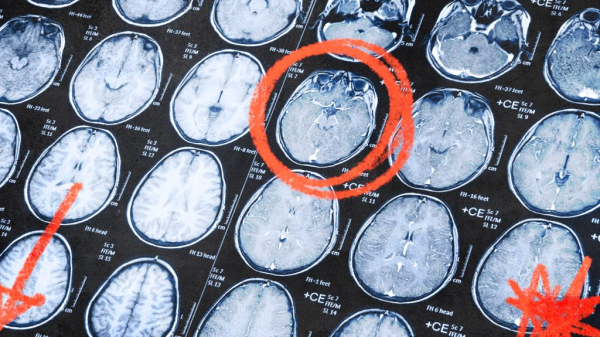Site uses cookies.
Learn moreWhat is the difference between nutritionists and dietitians?
12 August 2022

Dietitians and nutritionists have different qualifications and levels of training. In some…
Although dietitians and nutritionists both help people find the best diets and foods to meet their health needs, they have different qualifications.
In the United States, dietitians are certified to treat clinical conditions, whereas nutritionists are not always certified.
This article outlines the differences between nutritionists and dietitians, including their training, what they do, and insurance coverage.
What is the difference?
In the U.S., dietitians must receive certification from the Academy of Nutrition and Dietetics in order to practice. Dietitians can treat specific health conditions, such as eating disorders, by providing food recommendations.
Some organizations also certify nutritionists, such as the Board for Certification of Nutrition Specialists (BCNS). However, nutritionist training can vary. Some states do not require certification, so it is possible for anyone in those states to offer nutrition advice.
Nutritionists may also have different areas of focus to dietitians. For example, nutritionists can pursue advanced qualifications in specific health areas, such as sports nutrition, digestive disorders, and autoimmune conditions. The BCNS also offer Certified Ketogenic Nutrition Specialist qualifications for those who want to understand the keto diet in more detail.
However, some nutritionists provide more general advice on healthful eating, weight loss, and reducing tiredness.
Training
The following sections will cover the different qualifications a dietitian or nutritionist may have.
Registered dietitian nutritionists
Registered dietitian nutritionists (RDNs) provide medical nutrition therapy (MNT) to people with certain health conditions.
This could be in a hospital setting or in a private practice. Sometimes, RDNs also provide nutritional education and expertise to schools, nursing homes, food-related businesses, or public health offices.
To become an RDN, a person must receive certification from the Academy of Nutrition and Dietetics. To earn this certification, they need to:
- have a bachelor’s degree or higher qualification at a regionally accredited university or college in the U.S.
- have the Accreditation Council for Education in Nutrition and Dietetics (ACEND) or the Academy of Nutrition and Dietetics accredit or approve their coursework
- complete 1,200 hours of supervised practice through an ACEND-accredited practice program
- pass a national examination that the Commission on Dietetic Registration administer
- complete continuing professional educational requirements to maintain registration
Certified clinical nutritionist
A certified clinical nutritionist (CCN) is qualified to assess people’s nutritional needs based on their lifestyle and health goals. The Clinical Nutrition Certification Board offer this certification.
A CCN can provide personalized recommendations for diet, exercise, supplements, and stress relief. To become a CCN, a person must have one of the following nutrition degrees in order to begin training:
- Bachelor of Science (B.S.)
- Masters (M.S.)
- Doctor of Philosophy
- Doctor of Science (Sc.D.)
Alternatively, they might have an advanced professional degree in another licensed healthcare field.
The amount of training a person needs to become a certified CCN depends on their preexisting qualifications. For example, someone with a B.S. degree must spend a minimum of 3 course hours on a range of topics — such as human physiology, biochemistry, and microbiology — before they become certified.
Someone with a more advanced degree, such as an Sc.D. or nursing degree, may not need to complete as much training. However, all CCNs must pass an exam and need to maintain their certification with ongoing training every 2 years.
Certified nutrition specialist
The certified nutrition specialist (CNS) credential is a qualification that a nutritionist can earn in the U.S. The BCNS certify all CNSs.
People who apply for CNS training must have an M.S. or doctoral degree in nutrition or another related field. In addition to these degrees, all trainee CNSs must:
- complete coursework from a regionally accredited institution
- complete 1,000 hours of documented, supervised practice
- pass an exam
- recertify with continuing education credits every 5 years
The minimum number of hours a CNS must spend learning about the life sciences is higher than that of CCNs. They may also study topics such as pharmacology, drug interactions, and nutritional disorders.
Insurance
Insurance providers often cover visits to RDNs for specific health conditions.
In 2020, the U.S. government recognized that MNT can help treat a range of chronic conditions that disproportionately affect Medicare beneficiaries. Two-thirds of Medicare beneficiaries have more than one chronic health condition.
The Medical Nutrition Therapy Act of 2020 provides Medicare Part B coverage of MNT to people who have:
- obesity
- prediabetes
- cancer
- celiac disease
- HIV or AIDS
- hypertension
- dyslipidemia
- malnutrition
- eating disorders
- any other disease or condition that causes unintentional weight loss
In addition to doctors, the legislation also allows nurses and psychologists to refer people for MNT.
Other nutrition services
Other nutrition services include nutrition coaches, health coaches, and fitness instructors in gyms. The level of training required among professionals with these job titles can vary.
In order to use titles such as RDN or CCN, a person must have proper certification. It is important to thoroughly check a practitioner’s qualifications and experience before working with them, as their expertise may vary.
Summary
RDNs provide nutrition guidance to people with specific conditions. A doctor, nurse, or psychologist can refer someone to a dietitian through Medicare if they have certain chronic health conditions.
Nutritionists’ qualifications and experience can be more variable, so people should check that a practitioner has adequate training for their needs before signing up for their services.
Although CSNs and CCNs are two of the most thorough nutritionist certifications, other nutritionist certifications are available. Additionally, some practitioners can call themselves “nutritionists” without receiving formal training or certification.
Article Source: https://www.medicalnewstoday.com/articles/nutritionist-vs-dietician



